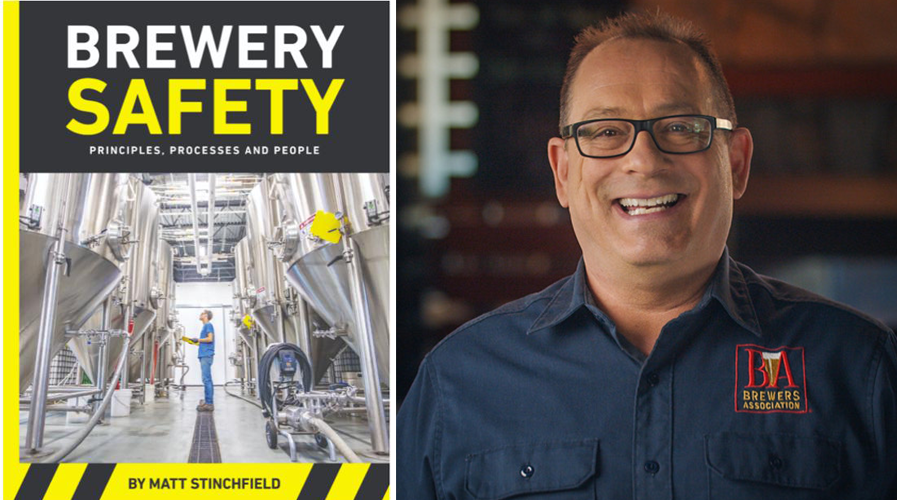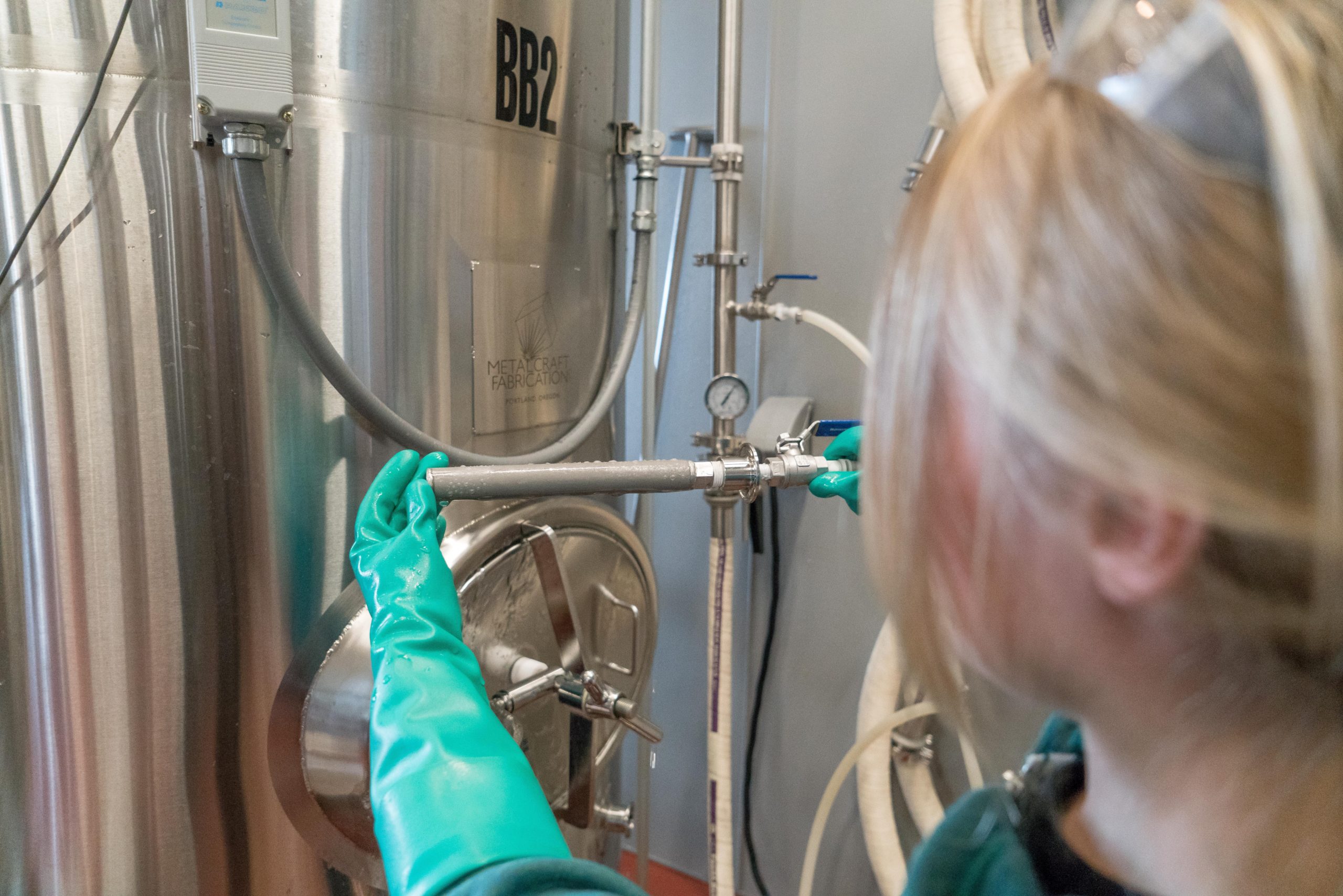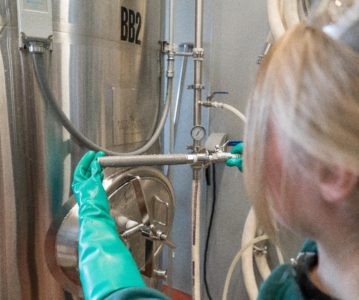Years ago, I attended the first of what would become several talks by safety expert, Matt Stinchfield. I was struck immediately by how he spoke about safety—about the need to build a culture of safety from the inside out, the importance of using diagnostic and assessment tools, being prevention-minded, and having empathy for other human beings. In short, the way Matt spoke about safety was precisely how I spoke about inclusion, equity, and justice (IEJ).
Over the years, Matt has become a good friend and favorite co-conspirator. Contrary to what you might think about someone who makes it their life’s work to spread the gospel of safety, Matt is anything but nagging, preachy, or boring. On the contrary, he’s hilarious, quirky, compassionate, painfully intelligent, and will have you thinking about safety in ways you’ve never imagined.
I had the chance to catch up with Matt recently to talk about how craft beverage businesses should be thinking about safety in the new year.

Dr. J: Okay, Matt. I don’t know if you are a resolutions guy, but tell me why craft beverage organization leaders should be resolving to make safety a priority in 2023.
Matt: New Year’s resolutions. Do we really have to do this again? The only thing worse is “March is Ladder Safety Month.” If you were going to stick with a month, at least make it December. That’s when more homeowners end up hospitalized after falling while hanging seasonal decorations. But really, every month, every day should be for ladder safety… for any kind of safety, too.
Dr. J: (Laughing) Yeah…I’m not a resolutions guy either. But the thing is that I want to be on some level. Wanting to improve your organization’s culture–whether it’s about IEJ or safety–seems like a situation that can turn out just like the dime-a-dozen resolutions.
Matt: Oh, the tired resolutions: I am going to eat less, exercise more, and stop obsessing over social media. If you are like me, you never seem to get very far with these nebulous ideas. We’d be much more likely to succeed if our resolutions were smart. SMART, as in Specific, Measurable, Attainable, Relevant, and Time-Bound.
Here’s SMART applied to your social media doom-scrolling:
Dr. J: (Thinks guiltily about her morning doom-scroll)
Matt: SPECIFIC: I want to reduce my anxiety and distress associated with Twitter. MEASURABLE: I will give myself a 30-minute/day Twitter budget If I scroll less than that, I get a bonus point. If I am on Twitter for more than the daily time budget, I do not earn a point. A point can be recorded with a gold star, a chalk mark, in a spreadsheet, on a piece of paper, whatever. I will be consistent in my daily recording. I will tally up a weekly score and document my mood while recording my score. I cannot roll over points to another day or week. ATTAINABLE: I will strive to meet this goal at least 4 days out of every week (i.e., at least 4 points/week). RELEVANT: The more time I spend on Twitter the more upset I become, so limiting exposure is likely to improve my mental well-being. TIME-BOUND: I will do this for 2 months and see if I am happier. I can renew this rule or tweak it, as needed.
Framed like this, resolutions can actually get off the ground. It means instead of thinking about your resolution, you are actively engaging in it, doing it. And doing has more power than just thinking or saying. Some people like to buddy up to help keep each other compliant.

Dr. J: I love that example because it highlights two things that I am always trying to keep top-of-mind. First, that maladaptive habits or policies often seem simple so we fail to bring structured change management processes like setting SMART goals to the table. Second, maladaptive habits or policies rarely serve us well in the first place, they are just “sticky.”
Matt: We can take it up one more notch. Consider a resolution that benefits someone else. Whether we’re talking safety, career advancement, or TikTok, I’ve noticed that self-centeredness seems to be the rule of the day. Being self-centered about your own safety or mental health is worthwhile, but not if we are ignoring those around us. We humans, social beings that we are, do better when we’re all doing better. We’re less stressed when we’re around laughing and listening and loving people.
Dr. J: So what do you think, Matt? Should we just resolve to ditch the vague resolutions altogether?
Matt: I’m not saying you shouldn’t resolve to do good to yourself this coming year. We are our best when our own body, mind, and soul are as fit as can be. But do things for others, too. You will benefit them and the rewards will reflect back upon you. If you see someone doing unsafe things, speak up, step up, give them a hand. If you encounter hate or denigration, try to take the high road and positively influence the conversation. If you can’t do that for concerns over your own safety, you can gather a posse or retreat to safety. For me, for this year and for every day, I am watching your back. Will you watch mine?
Matt Stinchfield is a career health and safety professional with a focus on safety culture mechanisms, inclusivity, and communication. His book Brewery Safety: Principles, Processes and People arrives in August ’23. Matt is available for speaking, consulting, and as a video content producer and talent for occupational safety training. Reach him at palatejack @ gmail.com or 802-258-8748.


